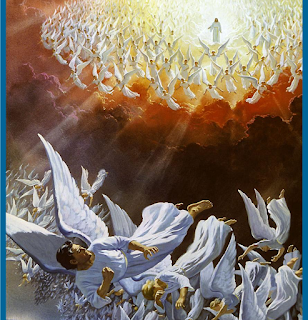Forsaken

"My G-d, My G-d, why have You forsaken Me?" This was the cry of Jesus from the cross just before His death (Matt 27:36). Did G-d abandon him there? Why would Jesus say such a thing when we are told as early as the Torah that "... the Lord your G-d, He is the One who goes with you. He will not leave you nor forsake you.” (Deuteronomy 31:6) Jesus died on the cross, bearing a load of sin that is incomprehensible. Imagine the worst thing you've ever done. Now imagine the worst sin you can think of that anybody has done. Now add those together and multiply by 7 billion. That's how much sin abounds if everyone alive today on the earth only commits one sin. Now add to that all of our daily indiscretions, lies, omissions, acts of will, etc. and you can see that this mountain of sin is immeasurable. That should give you a tiny idea of how much guilt and pain Jesus had to bear in order to pay the price f...


